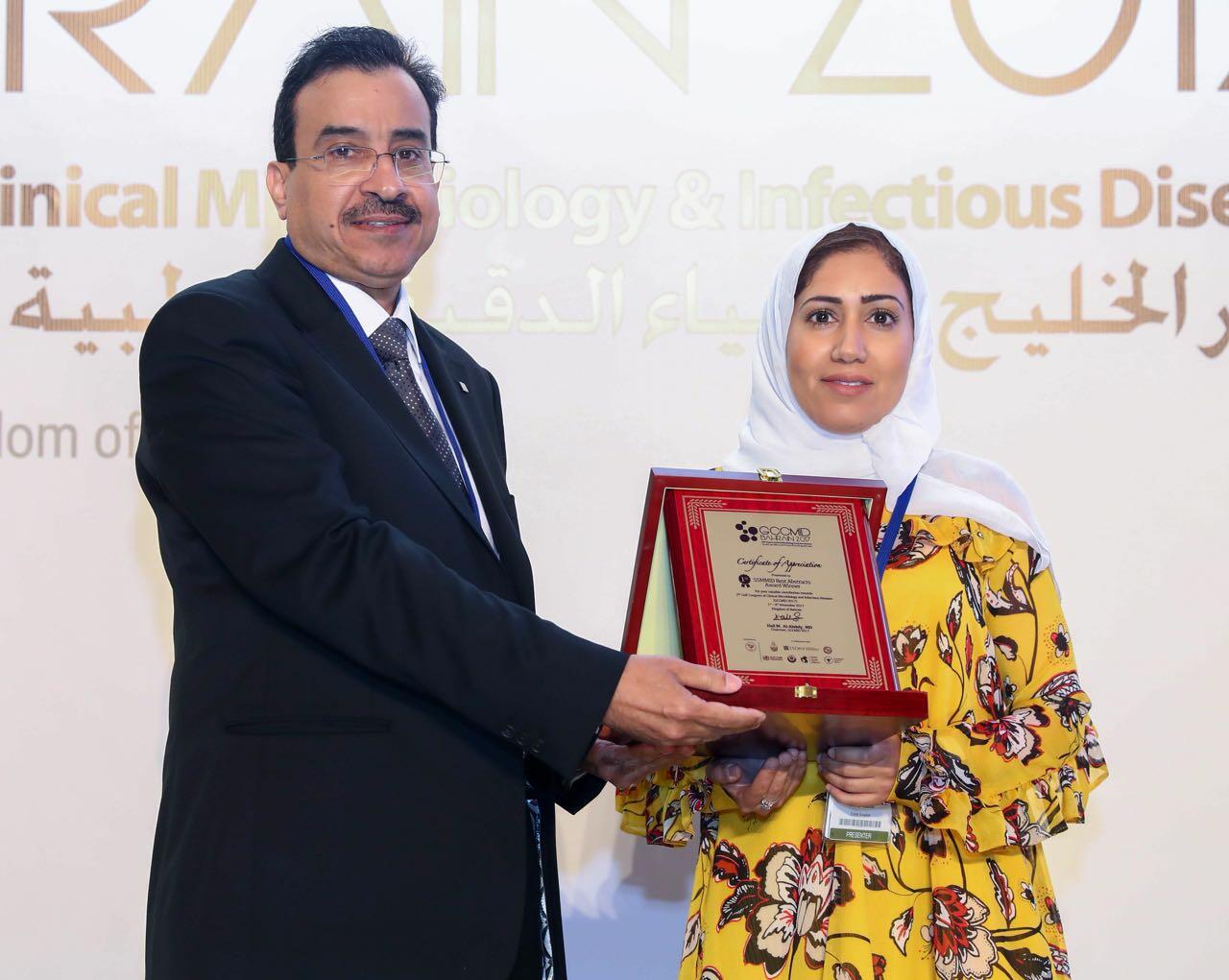
Ashwaq won her prize for her abstract on ‘Discovery of novel mutations in the voltage sodium channel gene of Aedes aegypti from dengue endemic regions in the Kingdom of Saudi Arabia.’
Her abstract summarises her PhD research at LSTM and is the first study in Saudi Arabia and the Middle Eastern region to uncover the mechanisms of insecticide resistance. She has discovered that Aedes aegypti, the primary mosquito spreading dengue fever in Makkah and Jeddah, are highly resistant to pyrethroids, which is the favoured insecticide of control mosquito populations in KSA.
Employed as a senior molecular biology specialist at the Ministry of Health in Saudi Arabia, she obtained her MSc in molecular cell biology from Nottingham Trent University. She then received a scholarship for a PhD project at LSTM to improve the vector control programme in Saudi Arabia. During the ceremony, earlier in November, she received her prize from the Conference’s chairman Professor Hail M. Al-Abdely, MD.
Ashwaq was delighted with her award and said “I am very grateful to the conferences judges for awarding me this prize in recognition of my work. I would like to deeply thank my supervisors Dr David Weetman and Professor Philip McCall for their outstanding support, without which this award would not have been possible.”
Ashwaq won previous awards at the LSTM Postgraduate student conference in the summer of 2017; the Royal Society Entomology postgraduate forum in 2015; and received in the same year an award of the Saudi Arabian ambassador in the UK, His Highness Prince Mohammed Bin Nawaf, in recognition of her overall work.